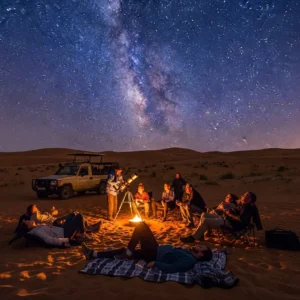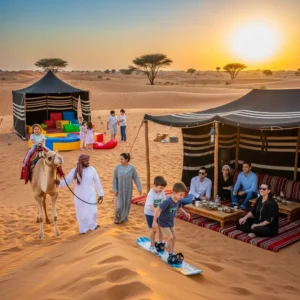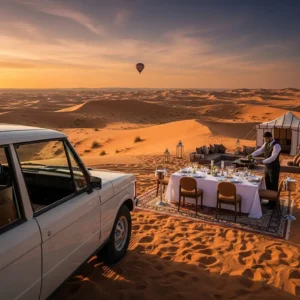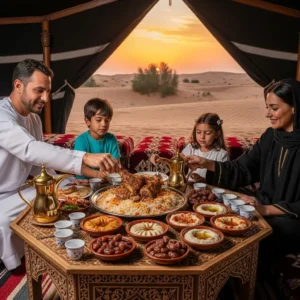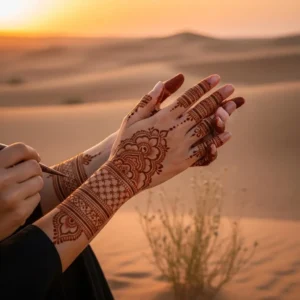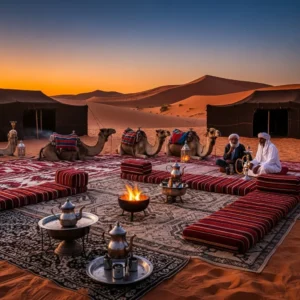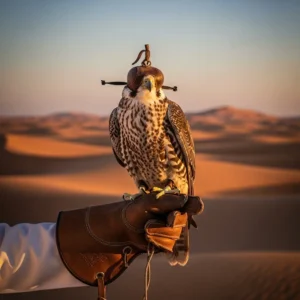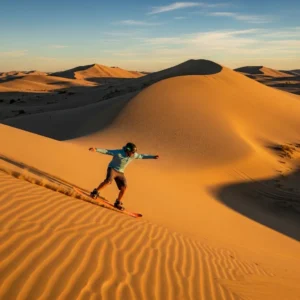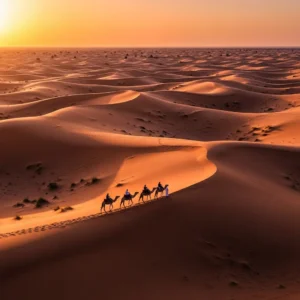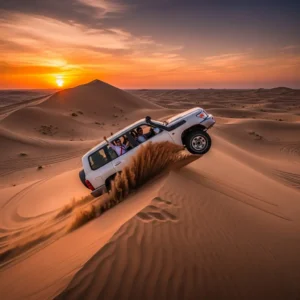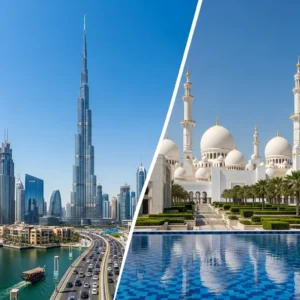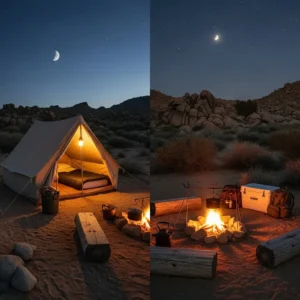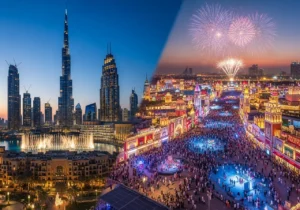A Month-by-Month Guide to the Best Time for a Desert Safari in Dubai
A desert safari is a quintessential Dubai experience, a thrilling adventure that is available for you to enjoy all year round. However, the experience of gliding over golden dunes, dining under the stars, and enjoying cultural entertainment can change dramatically depending on the month you choose to visit. The heat of August offers a vastly different backdrop to the cool breezes of January.
So, when is the absolute best time for a desert safari? The simple answer is that it depends on your priorities. Are you seeking perfect, balmy weather? Are you traveling on a budget and looking for the best deals? Do you want to experience a unique cultural event like Ramadan?
This exhaustive, month-by-month guide is designed to provide the definitive answer to that question. We will break down the entire year, analyzing the weather, crowd levels, pricing, and unique characteristics of each season. By the end, you’ll be able to confidently choose the perfect time for your unforgettable desert adventure.
Understanding Dubai’s Two Main Seasons
Dubai’s climate is characterized by two distinct seasons: a glorious and temperate winter, and a hot, humid summer. Understanding these is the first step in deciding on the best time for a desert safari.
The Glorious Winter (Peak Season): October to April
This is Dubai’s prime tourist season. The weather is idyllic, with blue skies, pleasant sunshine, and comfortable temperatures, making it the ideal period for any outdoor activity, including a desert safari.
The Sizzling Summer (Off-Season): May to September
The summer months bring intense heat and high humidity. While this might sound daunting, it is also the time for incredible travel deals. Safari operators are well-equipped to handle the heat, and the experience can still be thoroughly enjoyable with the right planning.
The Peak Season Deep Dive (October – April): The Ideal Time
For most visitors, this seven-month window is considered the absolute best time for a desert safari. The weather is simply perfect, allowing you to enjoy every aspect of the adventure in complete comfort.
Why This is the Prime Season
The daytime temperatures are warm and pleasant, perfect for sightseeing, while the evenings in the desert are cool and crisp, ideal for enjoying a barbecue dinner and entertainment under the stars. All activities, from dune bashing to camel riding, are at their most enjoyable during this period.
A Month-by-Month Analysis of the Peak Season
October & November (The Beautiful Beginning):
- Weather: As the intense heat of summer subsides, these months offer beautiful weather. Temperatures are warm but not scorching, and humidity levels drop significantly. Evenings become pleasantly cool.
- Experience: The city comes back to life after the summer lull. It’s a fantastic time for a safari as you get great weather before the main festive rush of December.
December, January & February (The Absolute Peak):
- Weather: This is the heart of winter and the pinnacle of perfect weather in Dubai. Expect clear blue skies, daytime temperatures that are ideal for any activity, and cool desert nights that might even require a good jacket.
- Experience: This is undoubtedly the most comfortable and popular, and therefore the best time for a desert safari in terms of climate. However, this is also the busiest time of year due to the festive season and holidays. You can expect larger crowds and higher prices for flights and hotels. It is essential to book your safari well in advance with a provider like https://royaldesertadventures.ae/.
March & April (The Golden End):
- Weather: The temperatures begin to climb, but it is still very pleasant, especially in March. April sees the transition towards the hotter summer months, but evenings in the desert remain lovely.
- Experience: The spring break and Easter holidays can make this a busy period. It’s your last chance to experience the desert in truly comfortable conditions before the summer heat sets in.
The Off-Season Deep Dive (May – September): The Budget-Friendly Option
While the summer is undeniably hot, a desert safari is still a very popular and enjoyable activity. The entire industry is designed to operate year-round, with tours adapted to ensure guest comfort.
Can You Still Enjoy a Safari in the Heat?
Yes, absolutely. The key is that safari operators are experts at managing the heat.
- Air-Conditioning: The 4×4 vehicles are powerfully air-conditioned, keeping you cool during all transfers.
- Timings: Evening safaris start later in the afternoon to avoid the peak heat of the day. By the time you reach the camp, the sun is setting and the temperatures are already dropping.
- Camp Design: Many camps have shaded areas and cooling fans to ensure a comfortable dining experience.
A Month-by-Month Analysis of the Off-Season
May & June (The Heat Arrives):
- Weather: The heat and humidity rise significantly. Daytime temperatures regularly exceed 38°C (100°F). Evenings are warm but manageable in the dry desert air.
- Experience: This is the start of the low season. You’ll find fewer crowds and some of the year’s best deals on flights, hotels, and tours.
July & August (The Sizzling Core):
- Weather: These are the hottest months of the year, with extreme temperatures and high humidity.
- Experience: This is the quietest time for tourism, and therefore the time for the absolute best deals. An evening safari is still a great escape, as the desert temperature drops more significantly at night compared to the humid city. This can be the best time for a desert safari if your primary concern is budget.
September (The Transition Back):
- Weather: The peak heat begins to subside, especially towards the end of the month, but it is still very hot and humid.
- Experience: You can still find good deals as the city prepares for the new peak season to begin in October.
Special Considerations: Beyond the Weather
The Holy Month of Ramadan
The dates of Ramadan change each year according to the Islamic lunar calendar. If your visit coincides with this holy month, your safari experience will be slightly different.
- Entertainment: Out of respect for the holy month, there is typically no belly dancing or live music. The Tanura and fire shows may still be performed.
- The Iftar Meal: The safari becomes a unique cultural experience. You will be served a special ‘Iftar’ meal at sunset, which is the traditional meal to break the fast. Sharing in this tradition is a memorable experience.
- Atmosphere: The overall vibe is more subdued and culturally focused, which many visitors find to be a more authentic and rewarding Bedouin camp experience.
Morning vs. Evening Safaris: A Seasonal Choice
- Evening Safaris: These are perfectly enjoyable year-round, thanks to the cooling desert nights.
- Morning Safaris: A morning safari, which focuses on dune bashing, is generally only recommended during the peak winter season (October to April). In the summer, the morning temperatures are already extremely high, which can make the experience uncomfortable.
The Verdict: So, When is the Best Time?
The best time for a desert safari truly depends on you:
- For Perfect Weather: If your priority is the most comfortable and pleasant climate, then the period from November to March is the undisputed winner.
- For the Best Budget: If you are looking for the most affordable deals and can handle the heat, June, July, and August are the best months to travel.
- For a Balanced Choice: For a good balance of pleasant weather and more reasonable prices, the shoulder months of October, April, and May are excellent options.
No matter when you decide to visit, booking with a reputable operator is key to a great experience. You can browse a wide variety of seasonal offers on platforms like https://dubaidesertsafarie.com/ or https://hafiztourism.com/, but ensure you book with a provider that has a strong year-round reputation for quality and safety.
Frequently Asked Questions (FAQs)
1. What is the hottest month in Dubai? August is typically the hottest month of the year in Dubai, with average daytime temperatures soaring to 42°C (108°F) or even higher, accompanied by high humidity.
2. How cold does the desert actually get in winter? In the peak winter months of December and January, the temperature in the desert can drop to around 10-14°C (50-57°F) at night. While not freezing, it feels quite chilly, and a warm jacket or fleece is absolutely essential.
3. Can I still do a morning safari in July? While some operators may offer them, it is generally not recommended. The temperature in the desert, even at 8 or 9 AM in July, can already be extremely high, making outdoor activities like sandboarding very uncomfortable and potentially unsafe due to the risk of heatstroke.
4. Is the desert safari camp air-conditioned? The enclosed majlis or lounge areas in high-quality desert camps are often air-conditioned or have powerful cooling fans. The main dining areas are typically open-air to enjoy the evening breeze, which is quite pleasant even in summer once the sun has set.
5. Are safari prices cheaper during the holy month of Ramadan? Yes, prices for safaris can sometimes be lower during Ramadan as it is typically a quieter period for tourism. It’s a great time to find a good deal and experience the unique cultural tradition of an Iftar dinner in the desert.
6. Will it rain during my desert safari? Rain in Dubai is very rare, especially from April to October. There is a small chance of a brief shower during the winter months (December to February), but it is highly unlikely to affect your tour.
7. Do I need to worry about sandstorms? Sandstorms can occur, but they are not frequent. Professional safari operators monitor the weather conditions very closely. If a severe sandstorm makes driving conditions unsafe, the tour will be canceled, and you will be offered a full refund or the option to reschedule.
8. Is the sunset better in winter or summer? The sunset is beautiful year-round. However, the clearer, less hazy skies of the winter months often produce more vibrant and spectacular colors.
9. Are there more crowds in the desert during the peak season? Yes, absolutely. During the peak months of December, January, and February, the desert safari is one of the most popular activities in Dubai. You can expect the camps to be at their busiest. Booking well in advance is crucial during this period.
10. If I visit in the summer, should I book an evening safari or an overnight safari? An evening safari is still very enjoyable in the summer. An overnight safari can also be done, as the desert air does cool down. However, the tents do not have air conditioning, so sleeping can still be quite warm. The evening safari is the more comfortable choice for most people during the summer.
11. Does the entertainment change depending on the season? The core entertainment (Tanura, belly dance, fire show) remains the same throughout the year, with the exception of Ramadan when the belly dance is usually paused out of cultural respect.
12. Is it too hot to ride a camel in the summer? The camel riding portion of an evening safari in the summer takes place just around sunset when the temperatures are already dropping. The ride is short and gentle, and it is perfectly comfortable and safe to do so.
13. What is the “shoulder season,” and is it a good time to visit? The shoulder season months (like October, April, and May) are the transitional periods between the peak and off-seasons. They often represent the best of both worlds: the weather is still very good (or getting better), and the prices and crowd levels have not yet reached their peak. It is an excellent time to plan your trip.
14. Will my experience be less enjoyable in the summer? Not necessarily. While you will have to deal with the heat during transfers, the actual camp experience in the evening is very pleasant. The main advantage is that you will experience fewer crowds and pay a lower price. For many budget-conscious travelers, it is the best time for a desert safari.
15. Does the food menu change with the seasons? The core buffet menu of grilled meats, salads, and Arabic mezze is consistent throughout the year. The selection of fresh fruits and some vegetable dishes might change slightly based on seasonal availability.
16. Are there any special festive events at the camps during Christmas or New Year’s Eve? Yes, many safari operators, including https://royaldesertadventures.ae/, host special events for New Year’s Eve, often including a special menu, a countdown, and a more extensive entertainment program. These special tours are very popular and must be booked far in advance.
17. What is the best month for photography in the desert? The winter months (December to February) are generally the best. The air is clearer, and the low angle of the winter sun creates beautiful long shadows and a soft, golden light that is ideal for photography.
18. Do tour prices fluctuate on a daily basis, or are they set for the season? Prices are generally set for the season. However, operators may run special short-term promotions or offer lower prices for weekday bookings compared to weekend bookings. It’s always a good idea to check for deals on the operator’s official website.
19. Is the desert itself different in summer vs. winter? The landscape of the dunes remains the same. The main difference is the desert vegetation. After the rare winter rains, you may see a surprising amount of greenery and small flowers in the desert, which is a beautiful sight. In summer, the landscape is more uniformly golden and arid.
20. Ultimately, if I have no budget constraints, what is the absolute best month? If budget and crowds are not a factor, and your only priority is the absolute best possible weather and experience, then January is arguably the best time for a desert safari. The daytime temperatures are perfect, the desert nights are cool and magical, and the skies are typically crystal clear.
